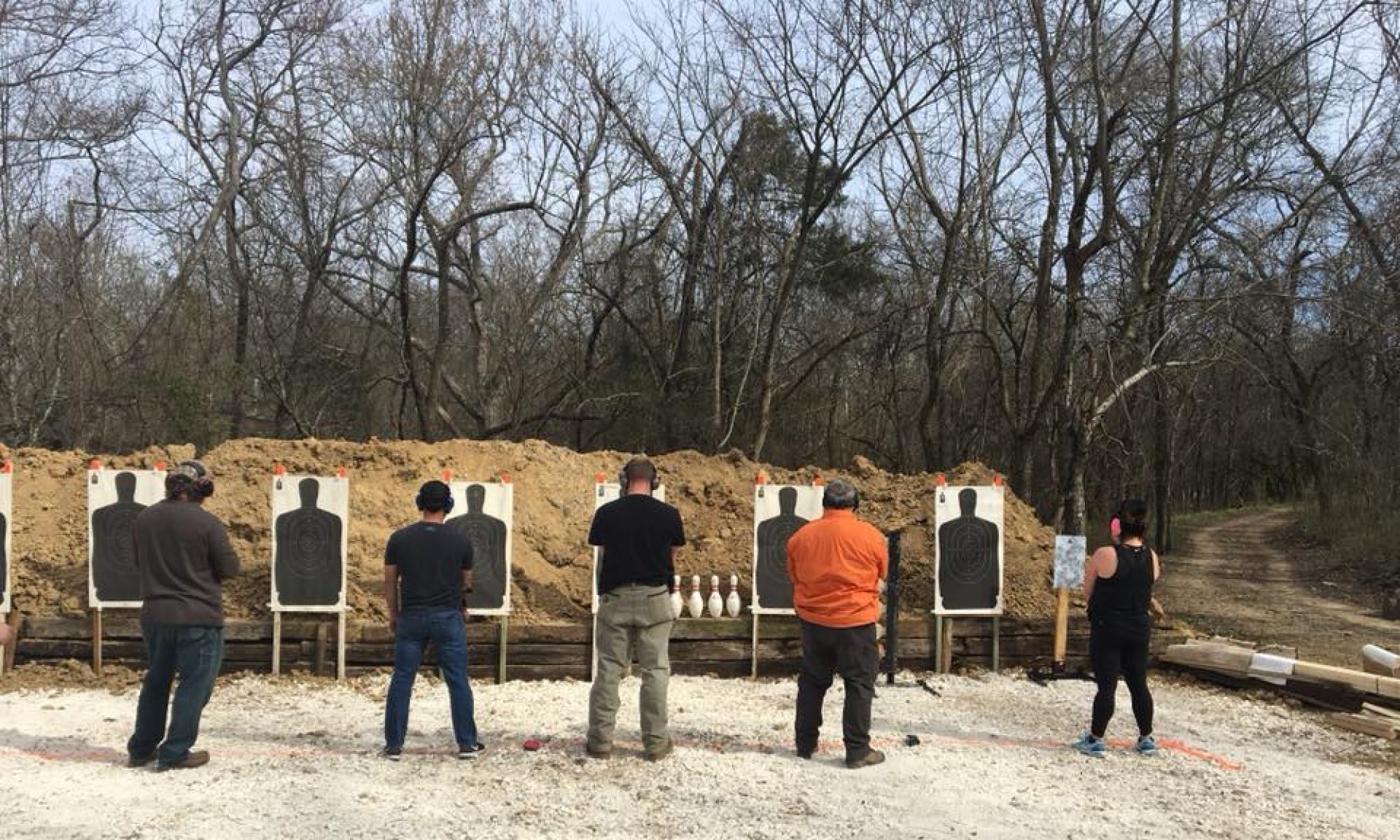You do not need a permit to possess a handgun in many circumstances. We are here to share knowledge and empower you as you exercise your rights.
I am an ardent supporter of the Second Amendment, however, I do not agree that Arkansas is a truly a constitutional carry state. We are very close, but there are still many infringements on our rights. There are still many “Gun Free Zones” that prohibit possession. One example, you cannot carry a firearm on Fayetteville’s trails or in their parks; how are we truly constitutional carry?
At this point you shouldn’t be charged with a crime for solely possessing a firearm, open or concealed, in the state of Arkansas. However, there many remaining restrictions in the law that infringe upon our constitutional rights. Laws only effect the law-abiding. We should have “constitutional carry” across this nation and nationwide reciprocity for concealed carry permits.
Brief History of the Dispute:
Prior to August 16, 2013, Arkansas law (§ 5-73-120) prohibited “…carrying a weapon…with a purpose to employ the handgun, knife, or club as a weapon against a person.” Among other exceptions, Arkansas law allowed a defense to the charge of carrying of a weapon if “[t]he person is on a journey…” but did not define what constituted a “journey”. Another defense permitted an individual to carry a concealed weapon if the person had a valid concealed weapons license.[23] This provision was generally interpreted to prohibit open carry.
On August 16, 2013, Arkansas enacted Act 746.[23] This act made two major changes. First, it statutorily defined a “journey” as “…travel beyond the county in which a person lives…” Because traveling on a journey is one of the defenses to § 5-73-120, a plain reading of the statute would indicate that the prohibition against carrying a weapon would now apply only to a person traveling within their home county. Second, it modified § 5-73-120 to prohibit “…carrying a weapon…with a purpose to attempt to unlawfully employ the handgun, knife, or club as a weapon against a person.” Various firearms groups have interpreted this provision to require that the state must now prove that a person actually intends to use a weapon to commit a crime; and without proving this intent, possession of weapons, whether openly or concealed, is now legal.[24]
However, some confusion still exists. On July 8, 2013, Arkansas Attorney General Dustin McDaniel issued an opinion stating that Act 746 did not authorize open carry.[25] On August 18, 2015, Arkansas Attorney General Leslie Rutledge issued a different opinion, saying that open carry of a weapon following Act 746’s passage is now generally legal, provided that the person has no intent to unlawfully employ said weapon. Rutledge also opined that, while mere possession of a weapon such a loaded handgun was formerly sufficient to establish “intent to employ” it as a weapon, such possession is now no longer sufficient to convict someone under § 5-73-120. Rather, the state must now additionally prove intent to unlawfully use the weapon.
However, Rutledge also opined that concealed carry generally remains illegal without a permit:
“…the laws requiring a license to carry a concealed handgun still have full force and effect. Nothing in Act 746, § 5-73-120(a), or this opinion is intended to suggest that a person may carry a concealed handgun in public without a properly issued concealed-carry license. A person may not lawfully carry a concealed handgun in public without a properly issued concealed-carry license. I believe this necessarily follows from the concealed-carry licensing scheme that predates Act 746 and that, in my opinion, was unaffected by Act 746.”
Because Act 746 did not remove or modify the other sections of Arkansas law pertaining to issuing concealed weapons permits, she concluded that possession of a concealed weapon without a permit could be construed as meeting the “unlawful purpose” requirement.[26] However, various firearms groups have disputed this opinion and argued that, because § 5-73-120 (and specifically subsection (a)) permits unlicensed open carry, the same legal logic would dictate that concealed carry with no permit is also now legal.[24] Further adding to the confusion is the fact that Act 746 changed the list of § 5-73-120 exceptions, including possession while on a journey and possession of a concealed handgun with a concealed handgun permit, from a list of “affirmative defenses” to a list of “permissible circumstances”. Rutledge noted in her opinion that such change could be construed as creating a “non-exhaustive list of circumstances under which it is permissible to carry a handgun”, thereby permitting a person to assert additional circumstances not spelled out in the statute. She also noted that future legislation would be the best solution to clear up the confusion that Act 746 has caused.[26]
UPDATE – 5/2/20
There have been two court cases that have tested the decriminalization of weapon possession:
JAMIE TAFF v. STATE OF ARKANSAS (2018)
Here we had an officer, trying to do the right thing with an individual obviously up to no good carrying a gun and drugs, who had been to jail many times prior to this incident and back many times since. However, Mr. Taff has rights and should be treated with respect.
A store owner called police reporting that Taff was “wearing a white shirt with a pistol stuck in his waistband, acting suspiciously, and going in and out of the store several times.” While en-route the officer was told by dispatch that “the man (Taff) with the pistol was walking east on Highway 270.”
Two miles from the Joplin Store, the officers saw a man fitting the description provided walking east on Highway 270. Officer Davis activated his blue lights and made a U-turn toward the same side of the highway as Taff pursuant to standard procedure when talking to someone on the side of the road to avoid being hit by an oncoming vehicle. As Officer Davis was pulling up behind Taff, he observed what appeared to be the outline of a pistol in Taff’s right pants pocket with his shirt covering the gun handle. When Officer Davis stopped behind Taff, Taff looked back, shook his head, took a couple of additional steps, and turned toward the officers. As Taff squared up to the officers’ vehicle, he reached into his left pants pocket and then started to reach around to the right side. At that point, Officer Davis drew his service weapon and ordered Taff to put his hands in the air. Following this initial stop, officers searched Taff and located the contraband for which he was charged.
One thing would have eliminated this case, not activating his blue lights. But at the end of the day “acting suspicious” is not a crime, nor should it be. This tested the weapon law in the state and the court clearly said that mere possession of a weapon in not a crime.
PETTRY v. STATE OF ARKANSAS (2019)
In Pettry the court had the opportunity to nullify concealed carry permitting, but they would not go that far.
Pettry was drunk on Dickson St (night life area in Fayetteville lined with primarily bars) he acted a fool in a bar, was kicked out, and on the way out ripped a door off the hinges. He ran from the bar and was caught by police. He was arrested for public intoxication and disorderly conduct. While searching him prior to putting him in the police car officers found a loaded Glock 43 in his pocket. For a little perspective, Pettry had been to jail about a dozen times prior to this and almost all were related to alcohol.
The court had an opportunity to settle the concealed carry permit question, but took a pass:
To hold that substantial evidence was presented to support the “carrying a weapon” charge in this case would arguably be tantamount to a conclusion that carrying a concealed handgun without a concealed-carry license necessarily violates Ark. Code Ann. § 5-73-120(a) and thereby exposes a citizen to a conviction for a Class A misdemeanor. But a statute imposing criminal liability on a person for merely possessing a concealed firearm without a license to carry one in a concealed manner is not the statute before us. The statute of conviction in this case is not of the strict-liability variety. Instead, it requires the State to prove that Pettry possessed a gun with the purpose of using it for an unlawful end.
The case came down to the state statute, as amended by Act 746 of 2013, which requires that the state prove that the defendant possessed the weapon with the “purpose to unlawfully employ the handgun, knife, or club as a weapon against a person.”
Once again this is a good ruling. Just merely having a gun or knife in your pocket should not be a crime. BUT, it does not nullify all the laws and prohibition on where you carry a weapon. In fact, little known to the “constitutional carry” folks, in the state of Arkansas if you want the most freedom to carry you have to posses a Basic and Enhanced permit.
ARKANSAS ARMORY out of Little Rock put it very well:
We have the Federal Gun Free School Zones Act. This makes it a felony to be within 1000 feet of a school’s property with a firearm, unless certain exemptions are met. One of those exemptions is if the “individual possessing the firearm is licensed to do so by the State in which the school zone is located” That means the Arkansas CHCL exempts you from the federal Gun Free School Zones. So, if you want to legally be able to drop kids off at school with your pistol in the car, or even practically drive through most urban areas you will still need a CHCL.
Further, don’t forget about the wide array of federally prohibited places. Post offices, military installations, the social security administration, federal courthouses, the VA, and more are all places in Arkansas that are unaffected by this.
When we look at other Arkansas law, we can find a wide array of places that will remain illegal to carry without a (concealed carry) license. Generally speaking A.C.A. 5-73-119 makes it illegal to carry on school and college property (or bus stops) without a license. A.C.A. 5-73-122 makes it illegal to carry into “publicly owned buildings and facilities” including public offices, parks, sports fields, and other public recreational structures and properties) without the Enhanced License. Of course it will remain illegal to carry in other obvious places like courthouses. Carry into places licensed for alcohol consumption on the premises is illegal without an Enhanced license (or a restaurant with a regular CHCL).
The regular CHCL allows you to carry into a private employer parking lot. Carrying to a place that has a “no weapons” policy could subject you to criminal trespass charges if you don’t have a license. Also, remember that a license is likely required by other states you may be traveling to beyond Arkansas.
The movement to remove infringements upon our Second Amendments Rights is getting stronger. However, there are still many restrictions, laws, and regulations on the books about carry a concealed weapon. If you want the most options (or freedom) for carrying one I still think a concealed carry permit is the way the law (regardless of if I agree with it or not) expects us to do it.
All of these great changes are offering more and more protections to the law abiding citizens that carry weapons for self defense.

